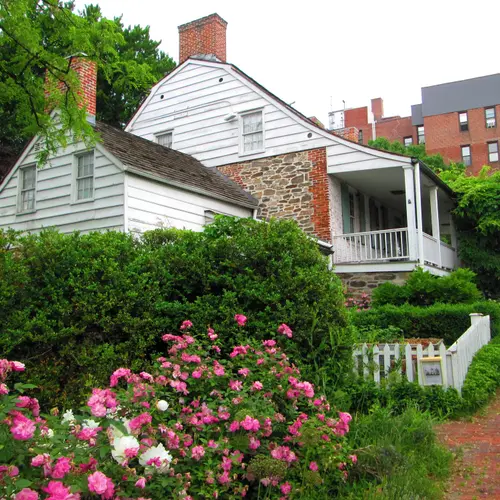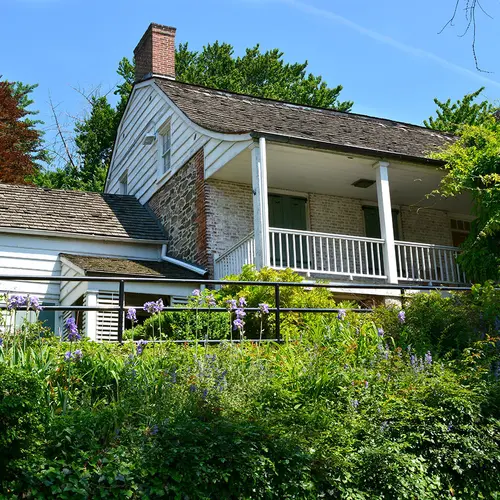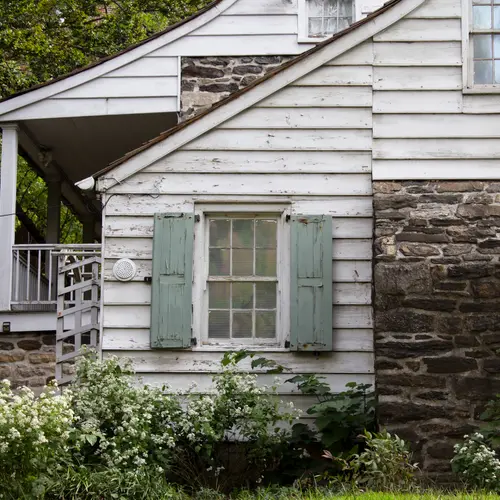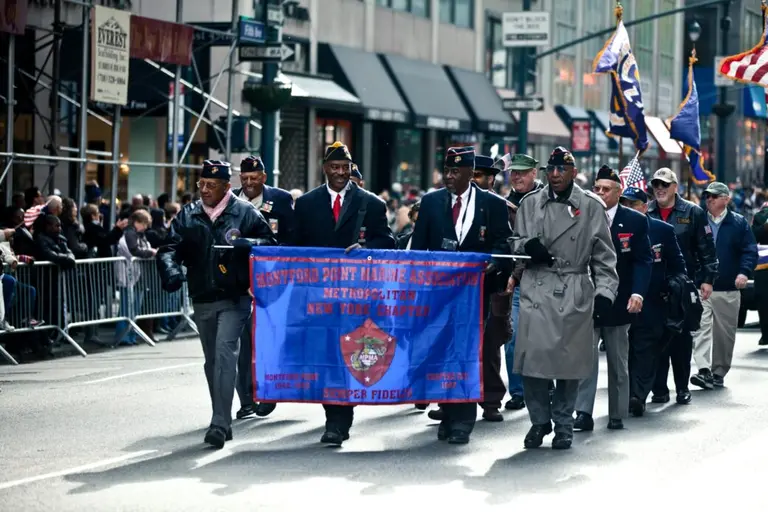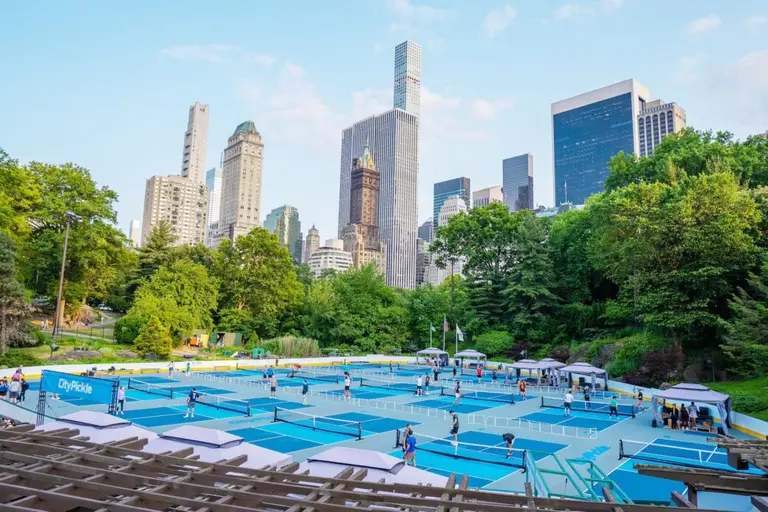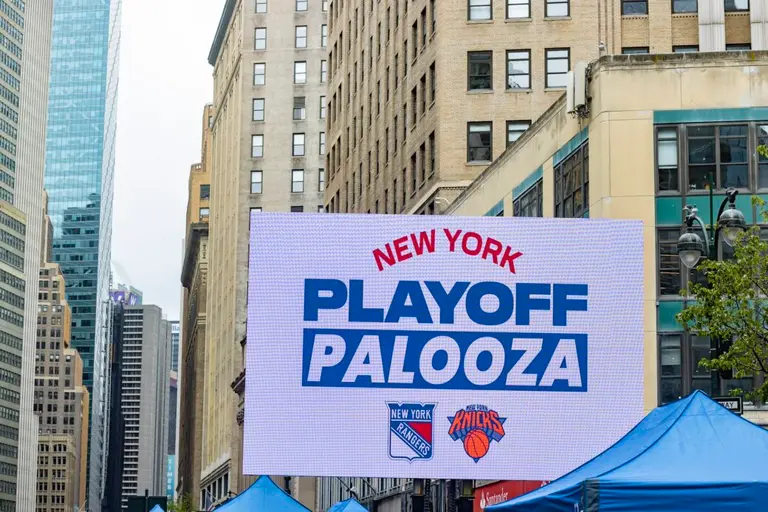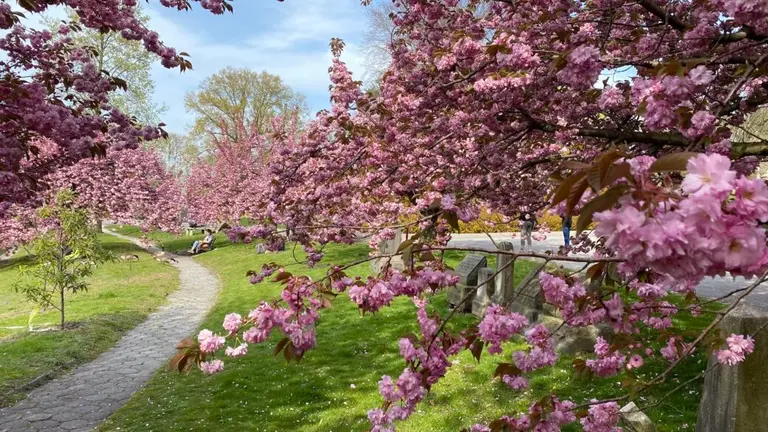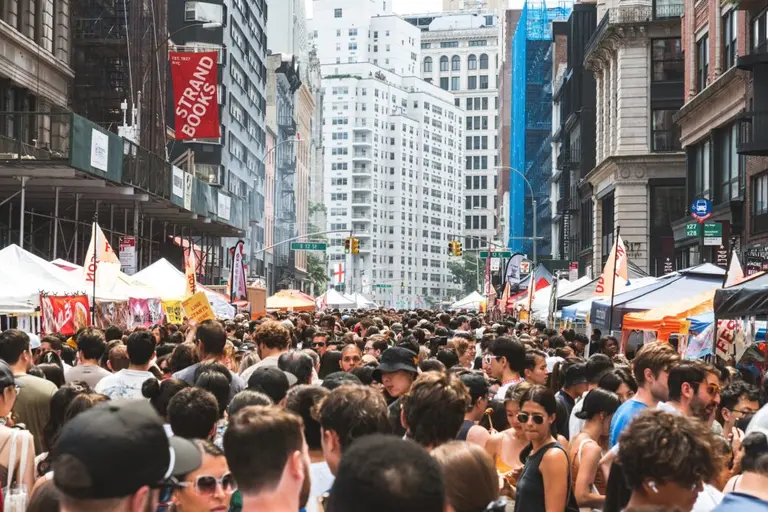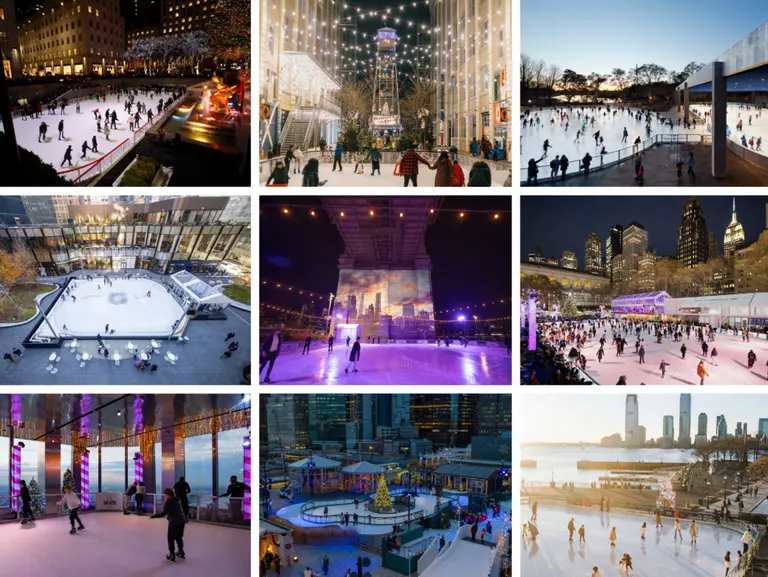Dyckman Farmhouse Museum opens new art exhibit exploring untold history of NYC’s Black communities
Photo Credit: Dyckman Farmhouse Museum Alliance
The last remaining farmhouse in Manhattan will explore a new side of its over 200-year history with an art exhibit. Inwood’s landmarked Dyckman Farmhouse Museum on Tuesday will open the exhibition Unspoken Voices: Honoring the Legacy of Black America, which will highlight the history of the enslaved and free Black residents that lived and worked at the farm. Unspoken Voices, which coincides with the museum’s reopening, includes work by five local artists who hope to bring these previously untold stories to light.
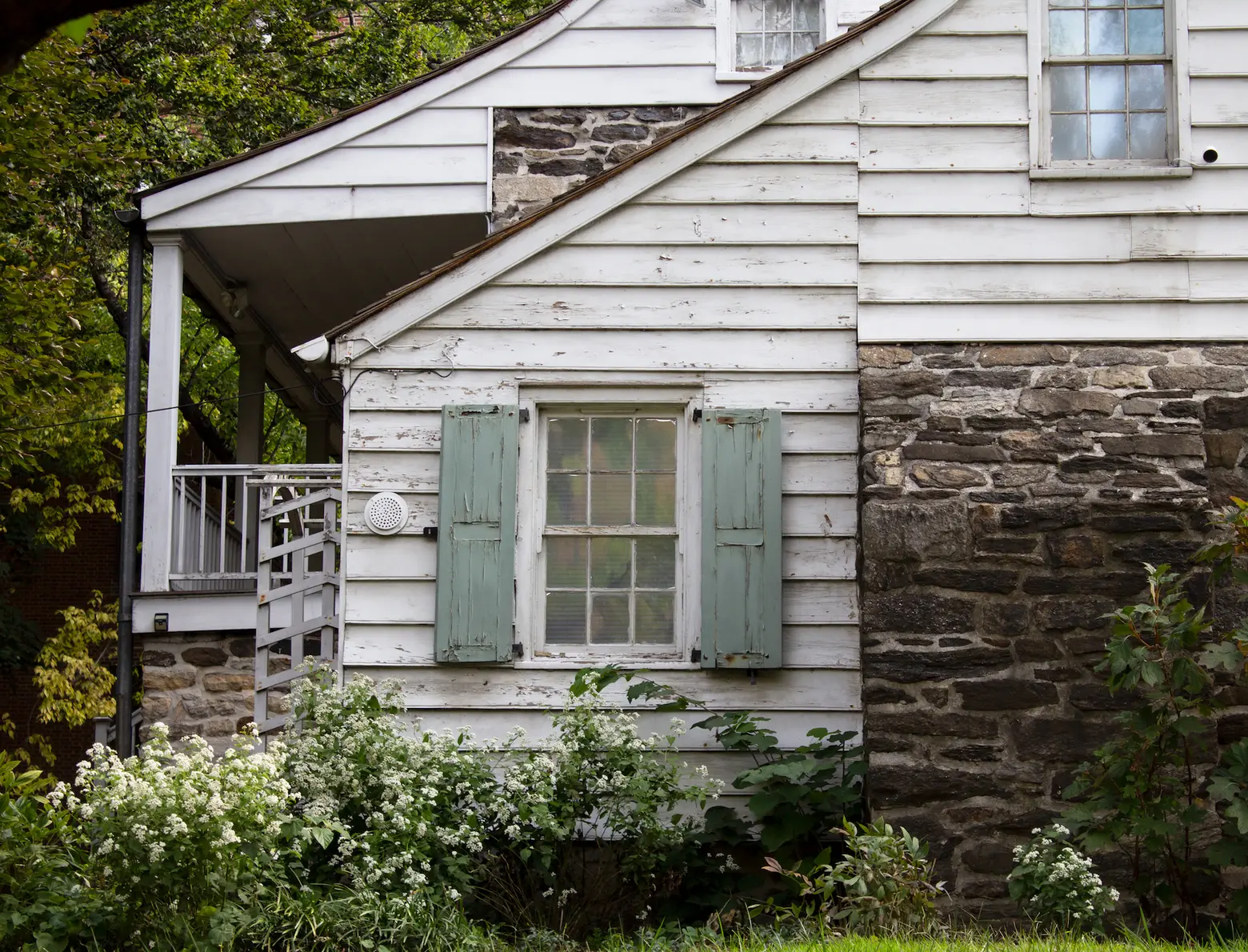
Photo Credit: Juan Brizuela
Built in 1785 by William Dyckman, the farmhouse originally included 250 acres of land that was in the family for generations. After descendants purchased and restored the farmhouse, they sold the site to the city in 1915 and it became a public museum a year later.
While the history of the Dyckman’s wealthy, white farm owners has always been well known, the museum launched the DyckmanDISCOVERED initiative in 2018 to learn more about the enslaved people who worked there. Through this project, the museum has learned about individuals who lived and worked at the farmhouse and surrounding area. The Unspoken Voices exhibition is inspired by the information revealed by the initiative.
Works featured in the display include Rachel Sydlowski and Marquise Foster’s “Assembly of Ciphers,” which will transform the front parlor of the home into a space honoring Upper Manhattan’s enslaved community with ceremonial and mourning clothes with floral embroidered lace and flora and fauna screen prints, furniture, and portraits, with some elements visible only with a blacklight, a symbol of hidden histories.
Artist Gwendolyn Black and Wilma Ann Sealy collaborated on “My Soul Sings of Freedom,” which will feature the daily life and fashion choices of enslaved people through mixed media, including paint and fabric. “Like Leaves” by Broadway composer and pianist Emme Kemp and writer Milton Polsky will play together with Black and Sealy’s work.
And in “Humanity VS Insanity,” Shelia Prevost has created hand-drawn portraits of Black African individuals “interacting with nature, the spiritual and the struggle of forced labor to build New York City,” according to a press release.
“The Dyckman Farmhouse Museum has always shared the history of its namesake family, and now more than ever, it’s time to share the history of the unheard with Upper Manhattan and the larger NYC community,” Meredith Horsford, executive director of the Dyckman Farmhouse Museum Alliance, said.
“Unspoken Voices addresses the importance of uplifting Black narratives both past and present, within a neighborhood and city that is predominantly made up of people of color. We’re eager to see the exhibition’s impact in giving a voice to the voiceless, especially amid the current, historic moment we’re witnessing as a culture.”
The exhibition will be available to view through summer 2021 by appointment only. Visitors can schedule a 40-minute private appointment to view Unspoken Voices at the museum on Tuesdays, Thursdays, and Fridays between 10 a.m. and 2 p.m. General admission costs $6 for up to five members of a household. Face coverings are required. Book a time to see the exhibit here.
ELATED:
